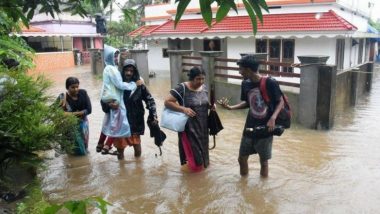After experiencing the worst monsoon of the century, Kerala is now hobbling back to normalcy. The rains that lashed the verdant state in the monsoon months have destroyed its infrastructure, crops and livelihoods for many. Losses to the tune of Rs 21,000 crore has been recorded in the state. But economic losses aside, one of the biggest dangers looming in Kerala is that of a potential health crisis in the form of epidemics. Right now, the people are vulnerable to many flood-related illnesses due to the mass displacement, break-down of civic infrastructure and water contamination. Dr Shalini Joshi, Senior Internal Medicine Consultant From Fortis, Bannerghatta weighs in on staying protected from disease during such times.
Diseases After Foods
Flooding, in particular, can increase the risk of infections and transmission of communicable diseases. Here's how flooding can affect the health situation of Kerala.
• Water-borne diseases, such as typhoid fever, cholera, leptospirosis
• Vector-borne diseases, such as malaria, dengue and dengue haemorrhagic fever
Earlier, the 2006 floods in Surat had led to an outbreak of leptospirosis. In 2013, there was a hepatitis A outbreak in Uttarakhand following the floods. Safe drinking water becomes scarce due to the contamination of water sources with human and animal waste. Gastrointestinal diseases like diarrhoea and vomiting become rampant. The risk for skin diseases, dermatitis, conjunctivitis, and ear, nose and throat infections go up. The elderly and the young are particularly in danger. If proper measures are not taken, the human casualty in the state may go up.
How To Prevent Getting Sick After The Floods
• Avoid travelling to affected areas
• Keep your surroundings clean and hygienic
• Clear the stagnant water
• Drink only boiled water
• Use mosquito repellent or mosquito nets. Read how you can avoid getting bitten by mosquitos
• Wash hands with soap and water
• Keep hydrated well
• Consult a doctor immediately if feeling sick
• Avoid contact with flood water which may contain faecal material from overflowing sewage systems and other hidden hazards such as debris
• Do not walk in or play in flooded areas especially with bare feet or flimsy footwear
• Keep open cuts or sores as clean as possible by washing thoroughly with soap to control infection. If a wound develops redness, swelling, or drainage, seek medical attention immediately. If you have not had a tetanus booster shot in the past five years, then get vaccinated
• Disinfect flood water contaminated toys by using a bleach solution
• It is important to vaccinate people in relief camps against Hepatitis A, provide mosquito nets and supply safe drinking water to contain the outbreaks
• Education on hygiene and hand washing, and provision of an adequate quantity of safe water, sanitation facilities and appropriate shelter are very important for prevention of infectious diseases which propagates by overcrowding
• There should be the development of public health surveillance strategy for people repopulating their houses after floods for potential health hazards namely mould infestation
Healthcare professionals should also take proper precautions while handling sick patients and even corpses. Wear protective masks and clothing to reduce the chances of contracting illnesses. In the face of such losses, it's common for many patients to suffer from mental problems such as PTSD, anxiety and depression. Authorities should also mobilise mental health professions to offer psychological counselling in the time of need.
(The above story first appeared on LatestLY on Aug 23, 2018 11:40 AM IST. For more news and updates on politics, world, sports, entertainment and lifestyle, log on to our website latestly.com).













 Quickly
Quickly


